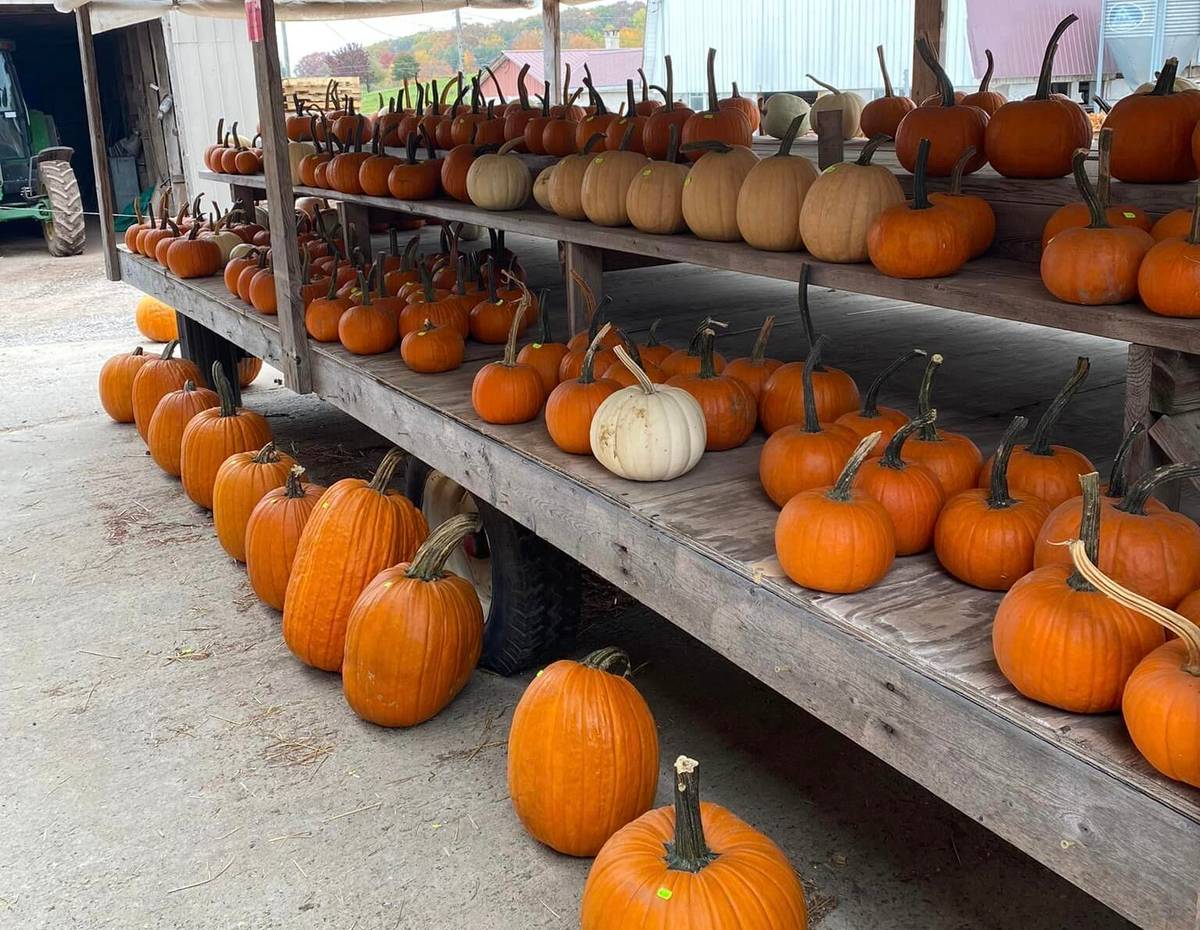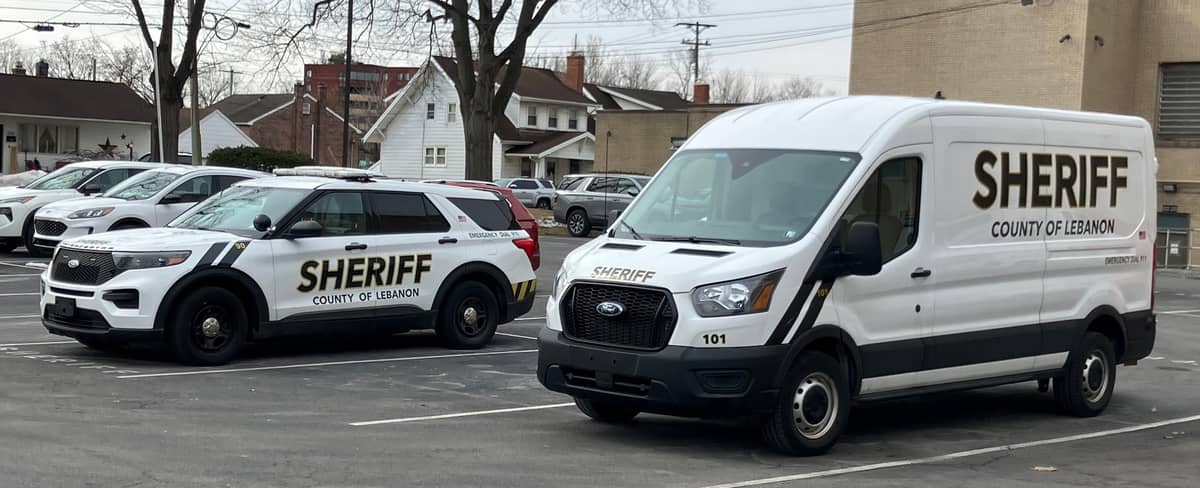As a pumpkin producer, Kevin Heagy knows it is a versatile vegetable.
Heagy, owner of Heagy’s Pumpkins and Produce, Lebanon, said pumpkins grown at their operation in the 900 block of Kochenderfer Road never go to waste.
“In the case of all of the produce we pick, if anything doesn’t sell, we feed it to our beef cattle,” said Heagy, who added the farm has about 40 head of Angus beef cattle “They say the seeds actually deworm the animals.”

Even the pumpkins that remain in the fields are “recycled” by Mother Nature.
“Whatever is left in the field rots down into the soil,” said Heagy. “All the nutrients from the pumpkins left in the field break down and return to the soil. By springtime, the pumpkins are rotted down to nothing.”
LebTown asked Heagy if the pumpkins that remain in the field after the harvest are ones that nobody wants to purchase during the fall season. Those pumpkins are actually “late bloomers” that don’t fully mature and make it to market.
“Some of them will look like they are ripe, especially at the end of the season, but you will have ones that set late on the plant and most times they won’t develop into a normal size or the full orange color,” said Heagy. “They’ll partly turn, but not enough.”
Delbert Voight, Jr., senior extension educator for agronomy at Penn State Extension, explained that like most vegetables, pumpkins come in varieties for human consumption and to decorate.
“You have the consumer market – the ones you cut as lanterns and put on the front porch,” said Voight. “And then there’s the pumpkin filling market, which they make pumpkin filling out of them as a food source.”
Voight agrees that pumpkins are versatile.
“Those seeds are amazing because you can bake the seeds and eat them too,” added Voight. “My wife puts them into the oven and bakes them. They are also great for recycling because they either go into meat or go back into the soil.”
Voight said consumers don’t have to be a farmer to recycle their carver pumpkins, noting that people who have a compost pile or a garden should deposit their pumpkins there instead of sending them to a landfill.
“If they have a compost pile, just recognize you’ll get some volunteer pumpkins in there,” said Voight.
Voight said discarded pumpkins should not be deposited on top of the soil where pumpkins will be grown next year.
“If you happen to be raising pumpkins, you don’t want to put pumpkins on told of pumpkins or you could have problems,” added Voight. “You get certain diseases in the field and it is like anything else, you have to rotate them for so many years out so you don’t get different diseases. But I don’t think that just pumpkins themselves if being composted in a normal garden environment will spread (diseases) to other vegetables.”
The Heagy family’s farm, which totals about 40 acres at the retail stand location, has about 15 acres of produce. The market sells various kinds of pumpkins to their customers, who come in droves in the fall to get theirs.
“We easily get 100 to 150 people on a Saturday in season,” said Heagy. “It rained a lot on Saturdays this fall, but that just spread out our customers over the rest of the week. At the beginning of the season, the carver pumpkins, the face pumpkins, really don’t sell but the ones you stack, people really like them and they get here early.”
Behind the small retail shed on the farm that also houses produce for sale is an open-air structure with a roof that is used in the fall to display the pumpkins that are for sale. “We have rows of pumpkins on shelves under there,” said Heagy pointing to an area where they are on display before being sold, much like a shelf in a grocery store.
Pumpkins in Pennsylvania are not only big business at Heagy’s but across the entire state, according to Voight.
Pennsylvania ranked in the top six for pumpkin production in the nation in 2022, growing about 90 million pounds that year on 6,600 acres. In Pennsylvania, the pumpkin growing season starts around Memorial Day when seeds are planted and harvesting begins in September around Labor Day and continues until near the end of October.
Questions about this story? Suggestions for a future LebTown article? Reach our newsroom using this contact form and we’ll do our best to get back to you.

Become a LebTown member.
Cancel anytime.
Monthly Subscription
🌟 Annual Subscription
- Still no paywall!
- Fewer ads
- Exclusive events and emails
- All monthly benefits
- Most popular option
- Make a bigger impact
Already a member? Log in here to hide these messages
Strong communities need someone keeping an eye on local institutions. LebTown holds leaders accountable, reports on decisions affecting your taxes and schools, and ensures transparency at every level. Support this work with a monthly or annual membership, or make a one-time contribution. Cancel anytime.

























